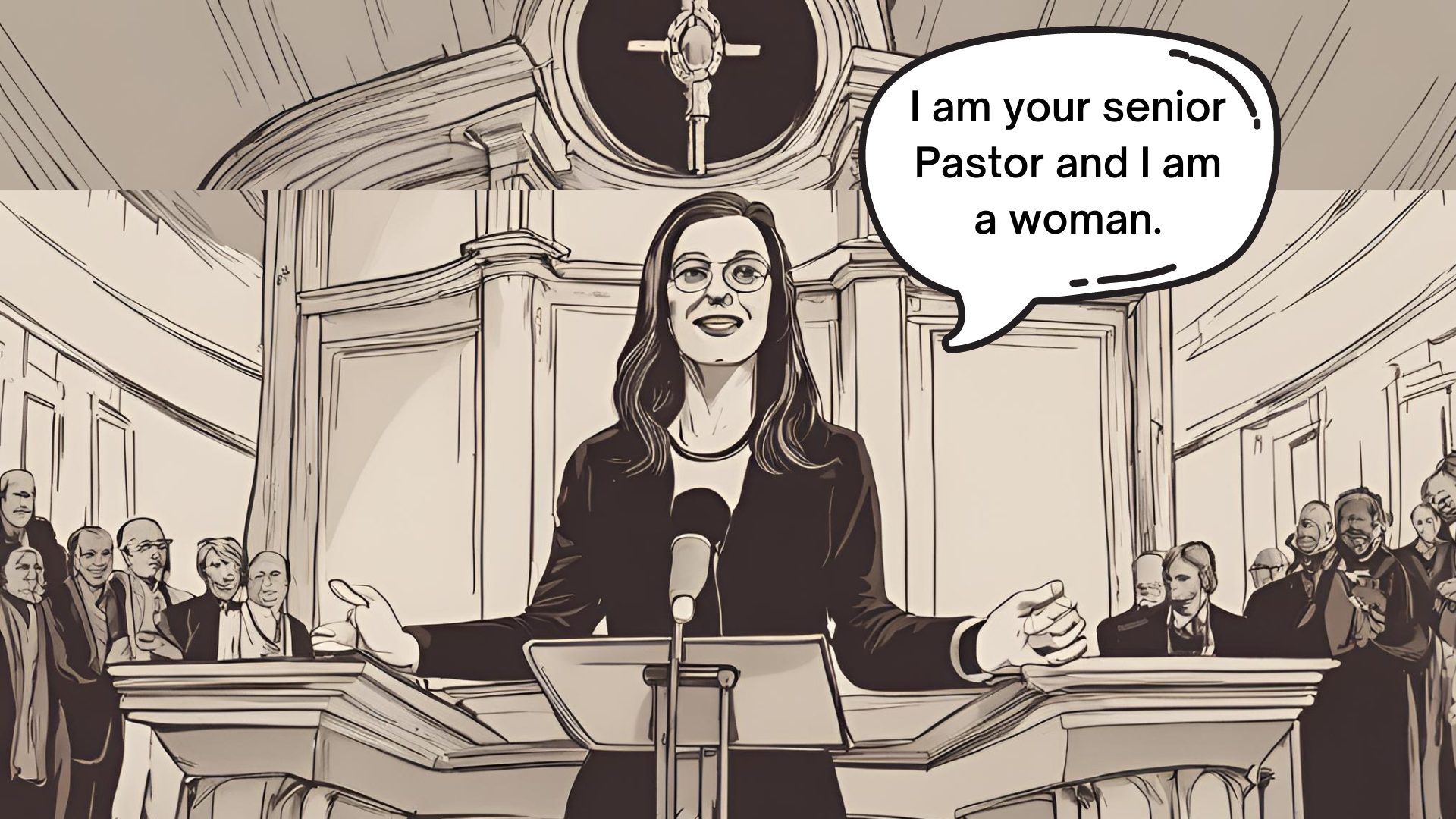Views: 0
English Version
The topic of women serving as pastors in the church today remains deeply contentious, often framed as a debate between genders. However, it’s crucial to view this issue through the lens of biblical interpretation rather than as a matter of gender discrimination. There are women who firmly believe in the limitations on women’s ministry roles as outlined in the Bible, just as there are men who advocate for women serving as pastors without restrictions.
The Scriptures state, “A woman should learn in quietness and full submission. I do not permit a woman to teach or to have authority over a man; she must be silent” (1 Timothy 2:11–12). According to this perspective, God assigns distinct roles to men and women within the church, reflecting the order of creation and the consequences of sin (1 Timothy 2:13–14). Paul, guided by divine revelation, sets forth these guidelines, restricting women from roles involving teaching or spiritual authority over men. Consequently, this understanding prohibits women from serving as pastors, given the inherent responsibilities of preaching, teaching publicly, and exercising spiritual authority within pastoral roles.
This interpretation encounters several objections, one of which suggests that Paul’s restrictions were specific to the women of Ephesus due to the prevailing cultural context. Ephesus was renowned for its temple dedicated to Artemis, where women held authoritative positions in pagan worship. Hence, some argue that Paul aimed to counter these female-led customs, emphasizing a different model for the church. However, the absence of any explicit reference to Artemis or her worship practices in 1 Timothy undermines this theory. Paul’s directives in 1 Timothy 2:11–12 are not explicitly linked to local cultural norms but are presented as universal principles applicable beyond the confines of Ephesus.
Despite objections, the biblical structure in 1 Timothy 2:11–14 maintains clarity on the rationale behind restricting women from pastoral roles. Verse 13 provides the basis for Paul’s injunctions by referring to the order of creation: “Adam was created first, then Eve.” Moreover, verse 14 underscores Eve’s deception as an additional reason for these restrictions. This is not to imply women’s inherent gullibility but to establish a divine order wherein men are entrusted with primary teaching authority within the church.
Critics often cite examples from the Old and New Testaments, such as Miriam, Deborah, Priscilla, and Phoebe, to challenge this interpretation. While these women played significant roles in God’s plan, their experiences do not negate the principles outlined in 1 Timothy 2 regarding pastoral ministry. Instead, they reflect specific contexts and divine appointments outside the normative structure for church leadership.
In conclusion, while women are encouraged to exercise their spiritual gifts in various capacities within the church, including teaching and leadership, the biblical framework reserves positions of pastoral authority for men. This delineation is not indicative of women’s inferiority but aligns with God’s ordained structure for spiritual leadership. Women are vital contributors to the body of Christ, called to minister effectively within the parameters established by Scripture.
the debate over women serving as pastors in the church is multifaceted and deeply rooted in differing interpretations of scripture. While some advocate for a strict adherence to biblical guidelines that restrict women from pastoral roles, others argue for a more inclusive approach that recognizes women’s capabilities and callings. Throughout history, this debate has sparked impassioned discussions and theological reflection, yet consensus remains elusive.
Regardless of one’s stance on this issue, it’s essential to approach it with humility, recognizing the complexities involved and the diverse perspectives held within the body of Christ. As we engage in dialogue and study, let us prioritize love, mutual respect, and a commitment to seeking God’s truth above all else.
Ultimately, whether women serve as pastors or not, their contributions to the church are invaluable. They are called to minister, teach, lead, and serve alongside their male counterparts, utilizing their God-given gifts for the edification of the body of Christ. While humbly submitting to the orders design by God. For God is not the God of disorders.

